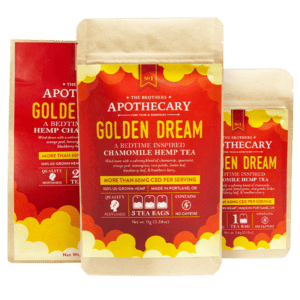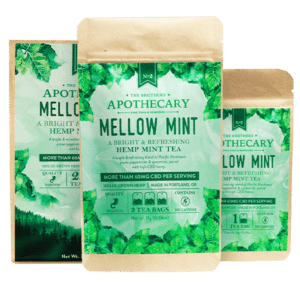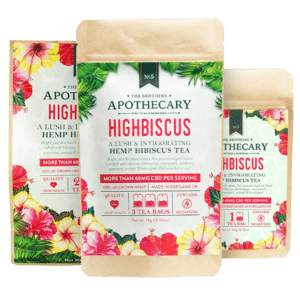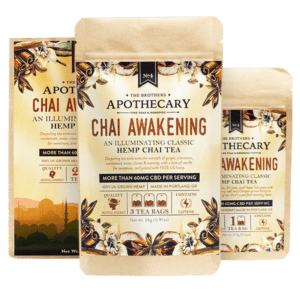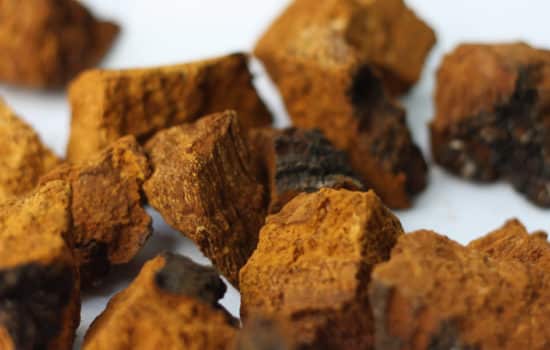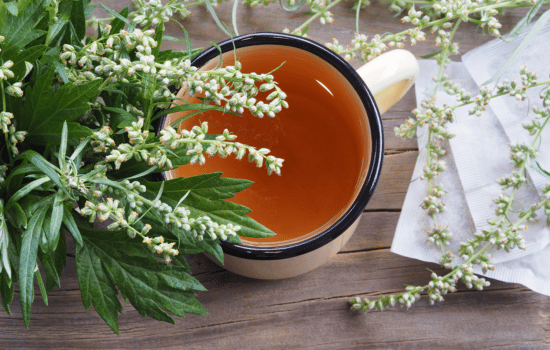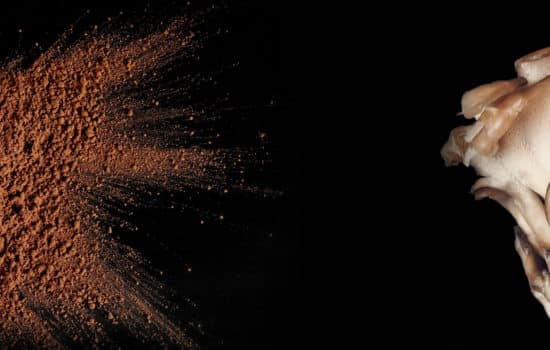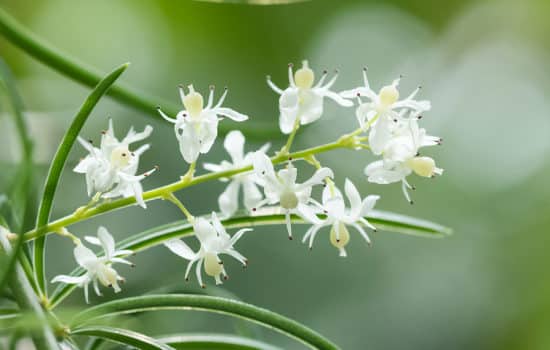Isn’t there just something about a ripe and juicy summertime berry? This time of year, there is little better than fresh-berry-packed pancakes on lazy summer mornings, a refreshing snack of summer fruits drizzled with raw honey, or a cold berry lemonade to help beat the late afternoon heat.
Most of us have a favorite go-to; be it strawberry, blueberry, raspberry, or blackberry. But there is one berry you may be missing out on that can add a sweet and tangy flavored dose of wellness to your day: the hawthorn berry.
What Are Hawthorn Berries?
Also known as quickthorn, thornapple, May-tree, Mayflower, or hawberry, the hawthorn plant is a member of the rose family (or the Rosaceae family) and part of the large Crataegus genus. There are over 200 species of hawthorn–including the Crataegus douglasii which is abundant in the Pacific Northwest, the ornamental Crataegus phaenopyrum, also known as the Washington hawthorn, and the Crataegus laevigata, which is native to Europe and also referred to as the English hawthorn or woodland hawthorn.
While all species of hawthorn can be used in herbalism, Crataegus monogyna, Crataegusoxyacantha, and Crataegus laevigata are the ones most commonly used in herbal supplements and teas.
Somewhat similar in appearance to cranberries or crabapples, the small hawthorn fruits grow on trees and shrubs commonly found in North America, Asia, and Europe.
Like roses, hawthorn shrubs have protective thorns. These fruit-bearing and flowering plants are often found in sunny and wooded areas in the Northern hemisphere, and typically grow to around five feet tall.
The small flowers of the hawthorn shrub can grow in pink, white, or red clusters that bloom in May, with the hawthorn berries (or haws) coming in next. Hawthorn berries are typically red, but can range in color from yellow to black. These bright berries are typically harvested in the fall when they are fully ripe. This often occurs right before the first frost.
Tart and tangy, hawthorn berries have a mild sweetness that is easy to enjoy. And, what’s more: these small fruits are jam-packed with a wide array of wellness-boosting nutrients.
With a long history in Western medicine, hawthorn has been used to help support heart health, ease stress, and aid in digestion.
The hawthorn berries, leaves, and flowers all have an important role in herbalism, thanks to their high concentration of antioxidant-rich flavonoids.
Interested in how you can incorporate the hawthorn berry into your own daily wellness routine? Read on to learn more about this fascinating fruit with The Brothers Apothecary!
The History of the Hawthorn Berry
The hawthorn leaf, berry, and flower, have been used for medicinal purposes for thousands of years. By some accounts, the use of hawthorn as a heart-healing herb dates back to the first century.
In the 1400’s, hawthorn could be found in herbal remedies and elixirs in China, Greece, Rome, and Switzerland. Over the course of centuries, hawthorn berries have been used to provide relief for an irregular heartbeat, congestive heart failure, high blood pressure, chest pain, digestive ailments, and more.
Hawthorn has been a mainstay in Traditional Chinese Medicine (TCM) for centuries. This berry is still extremely popular in China, where it is used as a base for sweet candies and treats in addition to herbal teas and medicinal remedies.
Hawthorn also has a rich history in mythical lore. With their beautiful, deep red berries and range of healing properties, it’s perhaps no surprise that hawthorne trees fit right in with the backdrop of mystical tales and folklore.
In ancient Rome, hawthorn was considered a symbol of love. In Ireland, the hawthorn tree has been called the fairy tree or gentle bush, and in Celtic mythology these trees are considered sacred symbols of love and protection where fairies reside. Hawthorn branches and flowers have been incorporated into wedding ceremonies in Greece and Ireland, and folklore also names hawthorn trees the guardian of the fairy realm.
And, we gotta say, with their slightly sweet flavor and wealth of antioxidants, the hawthorn berry truly is nothing short of magical.
Hawthorn Berries Are Rich in Antioxidants
Antioxidants are powerful molecules known for their ability to ward off free radicals within the body.
What Are Antioxidants?
Antioxidants are revered for their ability to stabilize free radicals, which are unstable molecules that can destroy healthy cells and put stress on the body. While some free radical production occurs naturally during metabolic processes, free radicals can also form through exposure to pollutants such as smoke, chemical toxins, car pollution, or overexposure to the sun’s UV lights.
Free radicals can latch on to cells in our skin and tissues and can cause oxidative stress as they oxidate cells. This process can damage skin cells and reduce collagen production, leading to wrinkles and fine lines. Oxidative stress can also harm the heart and is associated with various health issues and chronic ailments overtime.
Especially as we age, our bodies become less capable of fighting off free radicals on their own. Luckily, the antioxidants found in certain fruits, veggies, and herbs can provide a helping hand.
Antioxidants have the unique ability to stabilize free radicals, protecting our cells and preventing oxidative stress. Consuming foods with high levels of antioxidants can therefore play an important role in supporting healthy cardiovascular function and providing anti-aging properties that will help keep our skin rejuvenated and happy.
Antioxidants in Hawthorn Berries
Hawthorn berries make combating free radicals a breeze, as these berries are chock-full of antioxidants-rich nutrients.
Polyphenols are a type of plant micronutrient and antioxidant. While polyphenols are found in most plants, hawthorn berries have a particularly high polyphenol content. These antioxidants are thought to help control blood sugar levels by supporting the body in the production of the insulin hormone.
There are over 8,000 types of known polyphenols, including various flavonoids. One of the main flavonoids found in hawthorn berries is oligomeric proanthocyanidin (OPC).
OPCs are the compounds responsible for the deep reddish or purple coloring and are also found in grape skin, pine bark, and cranberries. Research suggests that the antioxidant properties of OPCs may help dilate blood vessels, improve blood flow, lower blood pressure, and protect blood vessels from oxidative stress.
Hawthorn berries, leaves, and flowers also contain anthocyanins, which is a plant pigment containing more antioxidant properties. These antioxidants may further cardiovascular health by helping regulate cholesterol levels.
Anthocyanins, along with other antioxidants found in hawthorne, have been found to help lower LDL cholesterol–which can build as plaque and eventually block the arteries–while increasing levels of HDL cholesterol–which can help flush excess LDL cholesterol out of the body.
Antioxidants such as those found within the hawthorn plant are also believed to help reduce swelling, which can help protect the brain and body in a number of ways. Studies suggest that antioxidants can play a role in protecting brain cells and reducing swelling associated with stress and tension, which in turn can help elevate the mood and reduce stress levels. In this way, drinking hawthorn berry tea can help settle nervous thoughts and reduce feelings of stress.
And because antioxidants can play a role in protecting skin cells, hawthorn berries have also been found to help prevent wrinkles and support moisture retention in the skin, helping reduce dryness and irritation.
Hawthorn Berries and Digestion
Hawthorn berries and extract have long played a role in aiding digestion, and for good reason. Along with antioxidants that can reduce swelling and support a strong immune system, hawthorn berries also contain fiber, which plays an important role in digestive health.
The fiber in hawthorn berries can help clear the digestive tract by promoting healthy bowel movements, limiting constipation and serving as a prebiotic that encourages healthy gut bacteria. Hawthorn berries may also help boost the production of digestive enzymes that break down fatty and protein-rich foods, providing the body with added energy.
Hawthorn berries can also help ease indigestion by reducing the time it takes for food to move through the digestive tract.
Along with fiber, hawthorn berries contain caffeic acid. This hydroxycinnamic acid contains antioxidant properties that can aid in limiting swelling in the intestine. By helping reduce intestinal swelling, the caffeic acid in hawthorn can play an important role in protecting the GI tract from damage overtime.
All About Hawthorn Berry Tea
While hawthorn berries can be incorporated into jams, jellies, syrups, candies, wines, tinctures, capsules, and dietary supplements; one of the most traditional and popular ways to enjoy the hawthorn berry is simply: in tea!
How Do You Make Hawthorn Berry Tea?
Hawthorn Berry Tea is a tasty and soothing way to reap the many health benefits of hawthorn berries. And making this tea super simple.
All you need are dried hawthorn berries (you can also use a mix of dried hawthorn berries, leaves, and flowers) and hot water.
To make, boil water and pour over two heaping tablespoons of dried hawthorn berry. You can steep your hawthorn tea in a mason jar, french press, or pot for at least forty five minutes–although we recommend letting it sit overnight to fully infuse the beneficial hawthorn compounds into the water.
Once ready, strain your hawthorn berries out and enjoy hot or iced! You can add sugar or honey to taste, but the tangy taste of hawthorn tea can also be enjoyed on its own.
Does Hawthorn Berry Tea Actually Taste Good?
Hawthorne tea has a warming energy with a unique taste that is easy to love. Hawthorne has a somewhat tangy, slightly earthy, and mildly sweet flavor that lends itself well to a cozy hot tea or refreshing iced tea that can be enjoyed any time of day or night.
Is There Caffeine in Hawthorn Berry Tea?
You can rest easy knowing hawthorn tea is completely caffeine-free. You can enjoy hawthorn berry tea whenever the craving hits without needing to worry about any caffeine-induced jitters or it keeping you up too late. In fact, hawthorn berry tea can help calm and settle your mind and soul to promote full-body relaxation.
Does Hawthorn Berry Tea Contain Vitamins?
Hawthorn berry tea contains a wealth of essential vitamins and minerals that can help support and regulate normal biological function. These include immune-supporting caffeic acid and vitamin C; brain-boosting acetylcholine, choline, vitamin B1, and vitamin B2; heart-helping and antioxidant-rich chlorogenic acid; and bone-strengthening calcium and phosphorus.
Caffeic acid is a phenolic compound that serves as one of the main compounds found in woody plants. With antioxidant, anti-swelling, and antiviral properties, caffeic acid can help the body fight off certain viruses and infections. The vitamin C found in hawthorn berry is also known to help bolster the immune system by encouraging production of infection-fighting white blood cells.
Acetylcholine is another chemical found within the hawthorn plant. Within the body, acetylcholine serves as a neurotransmitter of the parasympathetic nervous system, which helps control the body’s ability to relax. In this role, acetylcholine is known to help promote full-body relaxation by helping dilate blood vessels and slow the heart rate. Acetylcholine may also support memory function.
Vitamin B1 and choline are both neuroprotective micronutrients that can help support healthy brain function, memory, and muscle control.
The minerals found within hawthorn such as phosphorus, calcium, and iron can also support our overall well being. Phosphorus helps active enzymes and is a vital component of our bones, teeth, and cell brains. Meanwhile, calcium plays a role in supporting healthy bone growth and regulating normal heart rhythms, while iron helps make hemoglobin–a vital protein that carries oxygen from the lungs throughout the body.
Together, the vitamins and minerals in hawthorn can work together to promote relaxation and support a wide range of biological functions.
Can You Drink Hawthorn Berry Tea Before Bed?
Not only can you drink hawthorn berry tea before bed, but we wholeheartedly encourage it!
In fact, hawthorn berry is one of the main ingredients in our favorite bedtime tea here at the Apothecary: Golden Dream.
This smooth and luxurious caffeine-free herbal tea is the original Brothers Apothecary CBD Tea, and is deliberately formulated with sleep support in mind. Crafted with herbs and botanicals like calming chamomile, refreshing spearmint, bright orange peel, and settling hawthorn berry, this CBD tea can ground the mind and soul.
You can also find hawthorn in our Midnight Dream Tea–a limited time release of special CBG-infused Golden Dream.
Like other forms of hawthorn berry tea, Golden Dream and Midnight Dream are ideal for incorporating into your meditation practice or enjoying a half hour or so before bed to help you settle your thoughts as you unwind from the day and shift into sleep mode.
Is Hawthorn Berry Tea Safe To Drink?
Hawthorn berry tea is considered extremely safe for most people, with few side effects reported. However, there are some precautions to be aware of.
While side effects associated with hawthorn berry tea are rare and typically mild, potential side effects could include sweating, headaches, dizziness, heart palpitations, rash, tiredness, agitation, nausea, and gastrointestinal effects. If you experience any of these side effects, it is best to stop using hawthorn tea and speak to a healthcare provider.
As with any herbal or natural remedy, there may be some potential drug interactions between hawthorn and other medications or herbs.
Studies suggest that hawthorn berry may interact negatively with blood thinners, blood pressure medication, and certain heart medications.
While hawthorn berry tea has long been considered a useful heart tonic, you should always talk with a doctor first before using hawthorn tea if you have any heart issues–especially if you are on other medications–to make sure hawthorn tea is safe for you and right for your specific heart-health needs.
There is also no standard dosage when it comes to hawthorn berry tea or extracts. Clinical studies have safely used a dosage of 250-500 mg of hawthorn one to three times a day. If making your own hawthorn tea, we recommend drinking no more than two to three cups a day, or following the instructions and recommended dose on your product.
And, as always, make sure you only purchase hawthorn berries and teas from trusted sources, since herbal supplements are not strictly regulated by the FDA. Here at the Apothecary, our herbs and botanicals undergo vigorous quality testing, and all of our final products are third-party tested to verify their safety and quality.
If you have any questions about incorporating hawthorn berry tea into your diet, it is best to check in with your health care professional to find out what is best for you.
Wrapping Up
The bright and tart hawthorn berries not only taste delicious, but provide a wealth of wellness benefits that have been providing relief for thousands of years.
The antioxidants, vitamins, minerals, and fiber content in hawthorn berry tea can help reduce blood pressure and cholesterol levels, promote relaxation, ease stress and tension, and support a well-functioning digestive tract.
You can make your own tangy hawthorn berry tea using dried berries, or you can enjoy the benefits of hawthorn berry in our bright and calming CBD Golden Dream Tea.
Interested in seeking out more beneficial herbs and botanicals? Check out our entire collection of third-party tested CBD and herbal products at The Brothers Apothecary Shop!
Sources
The effects of Crataegus pinnatifida (Chinese hawthorn) on metabolic syndrome: A review | PMC
Caffeic Acid Modulates Processes Associated with Intestinal Inflammation | PMC
Jesse Richardson is the co-founder of The Brothers Apothecary. He's an avid tea drinker and the primary creator behind The Brothers' products. An undergraduate of UCLA for Political Science, Jesse currently studies Medicinal Plants at Cornell University and The International School of Herbal Arts & Sciences.



